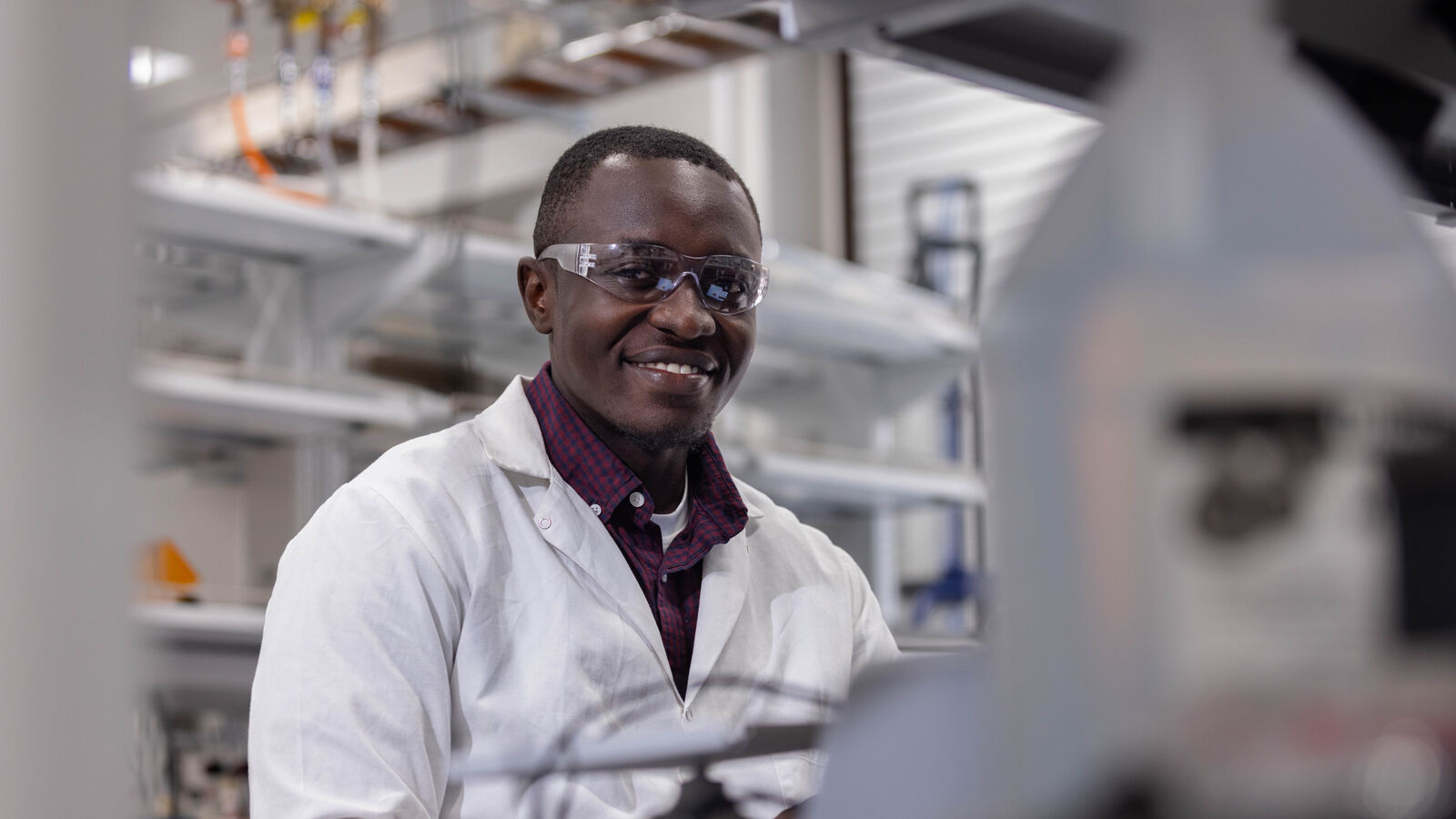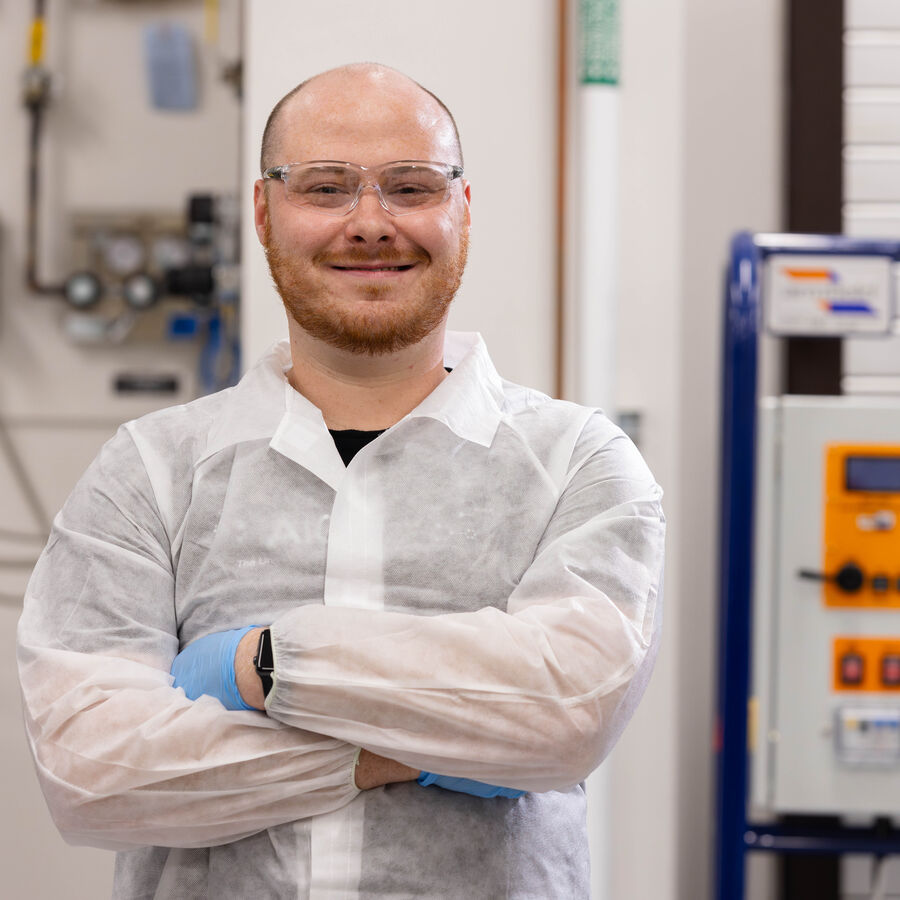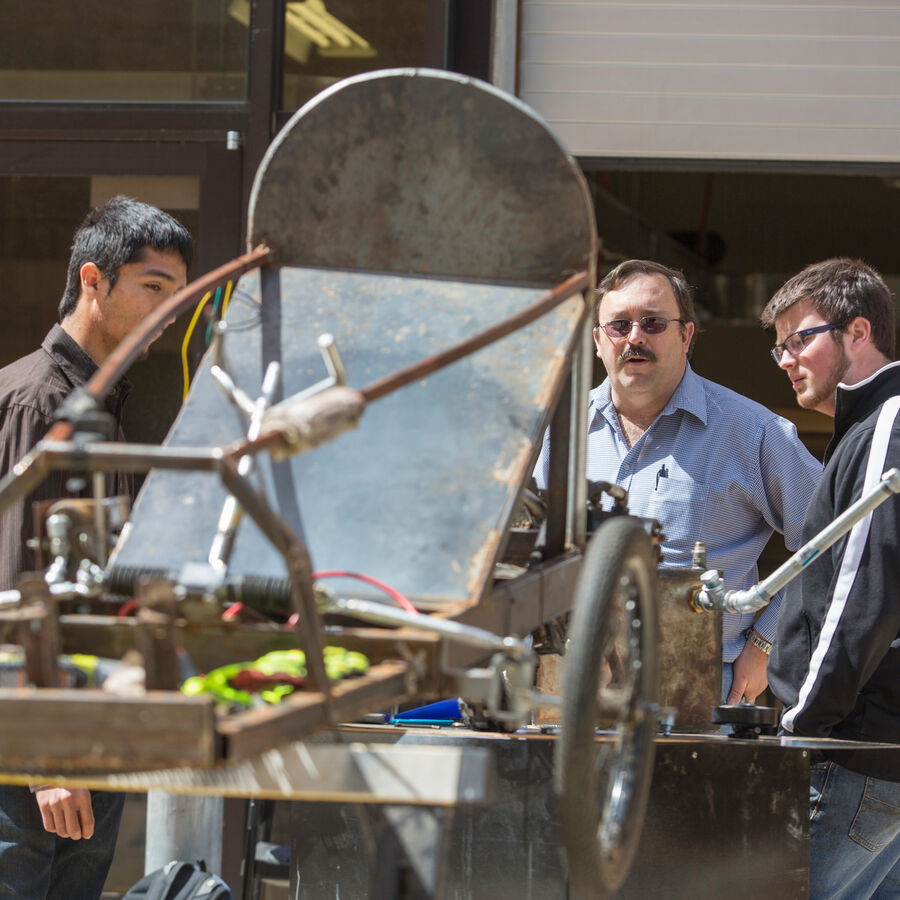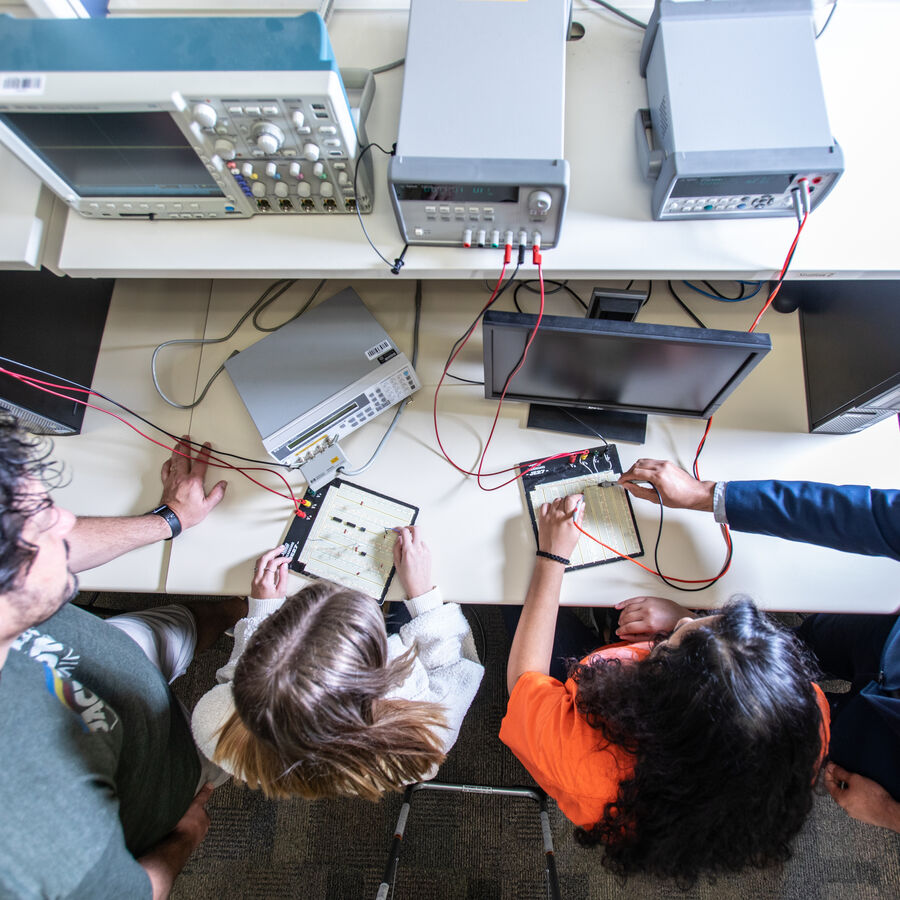
Bachelor of Science in Chemical Engineering
Using Innovation to Address Real-World Problems
Build a better, more innovative world through a combination of math, chemistry, physics, biology and engineering. From water desalination to the development of sustainable fuels and electronics, chemical engineers use their problem-solving skills to address pressing needs and advance various consumer products.
Develop this broad background through The University of Texas at Tyler’s Bachelor of Science in chemical engineering program. This field of study, focusing on the design and operation of chemical processes, enables you to work in multiple industries following graduation, including nanotechnology, materials, energy and medicine. You’ll discover materials and invent new products that change the world.
Why Major in Chemical Engineering at UT Tyler?
Established in fall 2019, UT Tyler’s Jasper Department of Chemical Engineering is home to the only chemical engineering program within a 175-mile radius of Dallas. The program was established with a gift from Jasper Ventures Inc.,, which highlights the company’s strong connection with the East Texas oil industry and points to a promising future by offering a practice-based, student-focused approach to education.
- Facilities: Our modern facilities house more than 20 pieces of equipment for teaching in all areas of chemical engineering, including fluid mechanics, heat and mass transfer, catalysis and reaction engineering and unit operations. The lab features world-class equipment for research in areas such as energy, fuels and biochemical engineering.
- Research: Research projects include the conversion of kelp into gasoline and diesel, the use of carbon dioxide for the extraction of petroleum, tissue engineering and synthesis of nanomaterials.
- Nationally ranked: U.S. News & World Report named UT Tyler’s College of Engineering one of the top 50 engineering programs in the U.S. For the second consecutive year, UT Tyler is the highest-ranked Texas public institution on the publication’s Best Undergraduate Engineering Programs (no doctorate) list.
- Nationally accredited: The University of Texas at Tyler chemical engineering program is accredited by the Engineering Accreditation Commission of ABET. With ABET accreditation, students and employers can be confident the program meets the quality standards that produce graduates prepared to enter a global workforce.
- Devoted faculty: Our professors have extensive experience in the field. You will receive individual attention from faculty who are wholly student-focused and dedicated to professional excellence.
- Industry connections: You will have access to industry leaders early on in your studies and opportunities for internships.
Curriculum
You will gain a strong foundation in chemistry, physics, mathematics and basic engineering. A design component is integrated into the curriculum to further highlight real-world applications of chemical engineering.
Chemical engineering courses include thermodynamics, transport phenomena, mass transfer operations, materials engineering, process dynamics and control, kinetics and plant design. You will have the opportunity to operate small-scale equipment and build partnerships with local industry.
During your first and second years, you will take such courses as:
- Calculus I
- Chemical Engineering Thermodynamics
- Chemistry
- Differential Equations
- Introduction to Engineering
- Multivariable Calculus
- Organic Chemistry
- Physics
During junior and senior years, you will explore more advanced principles, properties and applications of chemical engineering, studying such topics as:
- Analytical Chemistry
- Chemical Engineering Materials
- Fluid Mechanics
- Heat Transfer
- Plant Design
- Process Safety
- Reactor Design
- Separation Processes
Career Paths
As a chemical engineer, you can follow career paths in a variety of areas, such as biomedical engineering, energy, environmental remediation and materials science:
- Biochemical engineering manufacturing and production processes: Apply current-edge technology to biological materials, systems and processes in order to create new products.
- Energy, including petroleum and natural gas production and processing: Meet the challenges associated with all types of energy production and discover novel ways to generate the energy we need.
- Environmental contamination and remediation: Pursue your passion for the environment by developing technologies that will improve and maintain environmental health.
- Materials manufacturing and process design: Learn how to transform raw materials into valuable end products and develop high-performance materials.
Chemical Engineering Major Requirements
Visit the Jasper Department of Chemical Engineering
What Can You Do With a Bachelor’s Degree in Chemical Engineering?
Chemical engineers are employed by over 1,500 companies in East Texas, including manufacturers, engineering firms and pharmaceutical entities. Chemical engineering is integral to the development of consumer products, fuels, plastics and electronics.
According to the U.S. Bureau of Labor Statistics, demand for chemical engineering professionals is expected to grow 14% through 2031 — much faster than the average for all occupations. UT Tyler’s new chemical engineering program is well-positioned to help meet that demand and combat the projected shortage of chemical engineers over the next decade.
Current employment rates for UT Tyler graduates are higher than 80%, and our alumni rank in the top three in median earnings among UT System schools at the one- and five-year mark after graduation.
How to Apply
The University of Texas at Tyler offers a streamlined admissions process for all undergraduate students. Have questions or concerns? Our admissions team can guide you through all requirements and answer any questions you may have. Reflecting our reputation as one of the most affordable colleges in the state, our financial aid team helps you explore all scholarships, grants and other forms of assistance.
For admissions decisions in general:
- UT Tyler automatically accepts students from the Top 25% of graduating classes in Texas.
- Students from the 2nd to 4th quartiles must have a 2.75 or higher GPA.
Ready to apply? Review all undergraduate requirements to get started.
Start Your ApplicationUT Tyler has established partnerships with community colleges across Texas, allowing for a seamless transfer of your credits. Our relationships let you stick with your degree plan and graduate on time, right on your schedule.
July 1
ApplyTexas application opens for incoming first-year students.
October 1
The Free Application for Federal Student Aid (FAFSA®) opens for the upcoming academic year.
December 1
Application deadline to be eligible for scholarships.
May 1
Deadline for Valedictorian, Salutatorian and Transfer Presidential Scholarships.
August 1
Deadline for Patriot Promise Scholarship.
Explore Related Programs
Next Steps
Get ready for success. Drive discoveries that innovate the future with a bachelor’s degree in chemical engineering from UT Tyler.


